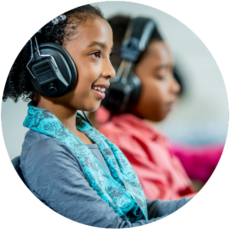
Benefits of RISE Testing
What is RISE?
The RISE (Readiness Improvement Success Empowerment) assessment in Utah is a state-mandated standardized test used to measure student achievement in English language arts, mathematics, and science administered to all students in grades 3-8.
-
- Federal law guarantees students with disabilities an appropriate education tailored to their unique needs. The RISE assessment is one tool to identify those needs. The results of the RISE assessment can help inform the development of individualized education plans (IEPs) outlining specific goals and strategies for supporting students with disabilities.
Some benefits for students with disabilities taking RISE (Readiness Improvement Success Empowerment) testing are:
- Accountability: RISE testing can help ensure that students with disabilities are held to the same academic standards as their non-disabled peers. This can help ensure that these students receive the support and accommodations they need to succeed academically.
- Identify Strengths and Weaknesses: The RISE test can help teachers and parents identify students’ strengths and weaknesses in specific academic areas. This information can be used to develop individualized education plans (IEPs) or other support plans that can help the student improve their skills and reach their full potential.
- Motivation: For some students with disabilities, taking the RISE test and seeing their progress over time can be motivating. Seeing their test scores improve can help students feel accomplished and boost their confidence.
- Access to resources: The RISE test results can help identify students with disabilities who may be eligible for additional resources or accommodations. This can include things like assistive technology, specialized instruction, or other supports that can help the student succeed in school.
Can My Child Access Accommodations for the Assessment?
The RISE assessment is designed to be accessible to students with disabilities, with accommodations and modifications available as needed. This is to ensure that all students have equal opportunities to demonstrate their knowledge and skills. For example, students with visual impairments may receive the test in Braille, while students with hearing impairments may receive the test with closed captioning.
Overall, you as a parent know your child. If you have concerns about how RISE testing will impact your student, do not hesitate to discuss your concerns with your child’s teacher or school administrator.
-
- Introducing RISE video: Introducing RISE (Readiness, Improvement, Success, Empowerment) – USBE
- Family Guide to Annual State Tests such as RISE
- Utah Participation and Accommodation Policy 2022-23 (Page 7 in handbook)
- Assistive Technology and RISE TESTING






